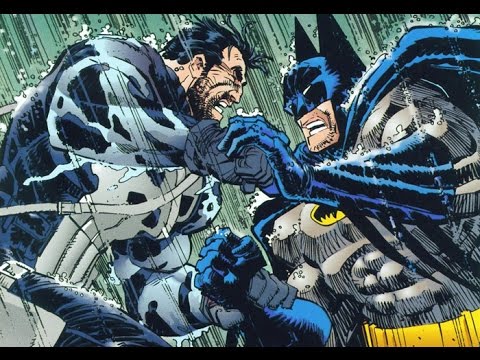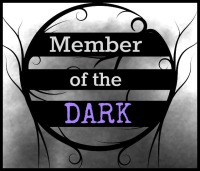
Punisher vs Batman
I wonder if I’ve ever written a real vigilante, but I don’t think I have. Windemere has laws, but adventuring is allowed and that covers a lot of the same ground. One could say the champions aren’t vigilantes because they were chosen by Gabriel the Destiny God and a major part of this archetype is that they take the law into their own hands. Cassidy and Lloyd Tenay are mercenaries in Bedlam, Ichabod Brooks is an adventurer for hire, and the Dawn Fangs have their own society in War of Nytefall. What I’m getting at here is that I haven’t really attempted the character type that I’m about to discuss.
First of all, the key point is that a vigilante is taking the law into their own hands. Either they think the law is too weak or they want to help by working outside the law, they are driven to fight injustice in some form. Many times, this is shown by the character being incredibly violent and playing judge, jury, and executioner. This turns them into an anti-hero, who is hunted by the very system he wishes to either help or strengthen. Punisher is a good example here. Others use non-lethal methods and stay out of the system to retain their freedom of action and hide their identity. This would be Batman. There are other variations, including the villainous type such as Scar from Fullmetal Alchemist, but the general idea is a character working outside the law.
There is a lot of debate on if these characters are good or bad. It’s a question of POV since that determines the narrator’s opinion. Imagine if the POV of the Batman comics was that of the Joker from the very beginning. You might see him as a true criminal even with his rationale, but you’d get a more negative view of Batman. The question of why he’s necessary would come up more often and the audience wouldn’t know better since this is how it started. Another example is the movie Death Wish. We know Charles Bronson was playing the hero because he was the focal point and we were made to feel connected to his journey. If you switched it to one of the gang members then it would change. In fact, it would be similar to I Know What You Did Last Summer where the characters are being killed for a past sin, but we’re made to think the punishment doesn’t fit the crime here.
Honestly, I’d love to give this character type a try in the future. I have one in my superhero world that would be closer to Spider-Man than Punisher since he’s non-lethal. Yet, that does bring in a challenge for vigilante heroes. How far do you have them go before you have to admit they’re now a villain? Can you have them kill indiscriminately and still pass them off as a true hero? The ‘freedom’ from the law that these characters have opens up new doors for the story, character development, and action scenes. Yet, many of those doors will lead to slides that put them closer to the darker side of heroism than the more noble one. Again, we find ourselves with a balancing act within our writing that we have to be careful of.
So, what do you think about the vigilante archetype? Does it have a place in fiction these days or has it fallen out of favor?





At first I thought the vigilante had fallen out of favor. But it seems to be making a comeback. I remember the old Death Wish. I’m not sure how the remake did. Liam Neeson keeps making the Taken movies. Though I wonder how long The Punisher will stay on Netflix since they keep canceling shows.
LikeLiked by 1 person
Disney is making their own streaming service. They’re probably pulling all of their shows from the competition. Is the vigilante making a comeback beyond Punisher?
LikeLiked by 1 person
I’m not really sure. Maybe? I think of the Taken movies as vigilante stories. And there are the Equalizer movies.
LikeLike
They tried a ‘Taken’ series too, I think. Wonder what happened to that.
LikeLike
I think I would enjoy a story about a vigilante, Seeking justice in an unjust world sounds like a super premise.
LikeLiked by 1 person
It’s a really fun character to use because it makes you question morality.
LikeLiked by 2 people
That is a good part too.
LikeLike
I love them and have gone down that path. Clovis qualifies as more of an anti-hero, but also delivered a bit of justice. Lizzie and the hat went all the way. They were all fun characters to play with, and nobody called me out for violence or morals.
LikeLiked by 1 person
Lizzie and The Hat were really good examples. Although, monster extermination’s tend to be applauded.
LikeLiked by 2 people
But in that story, it was humans that got exterminated.
LikeLike
Geez. Forgot about that. Sorry. Got my wires crossed.
LikeLiked by 1 person
Reblogged this on Author Don Massenzio and commented:
Check out this post from Charles Yallowitz on his Legends Windemere Blog on Fictional Vigilantes: When The Law Is Optional
LikeLike
Thanks. WordPress seems rather quiet this week.
LikeLiked by 1 person
You’re welcome.
LikeLike
I like Vigilantes because the gloves are off with them. I’m about to start the Family Secrets trilogy of my Lawman series. In it we have a young ex-Marine who has focused one hundred percent on nothing less than revenge. Where my central character, Det. Will Diaz, can’t touch some of this guys targets because of restraints by the Law (No probable cause), this guys already knows his targets, knows what they’ve done, and doesn’t need to prove anything in course. And he’s building up a body count. The interesting part happens when he and Will have to team up.
LikeLike
That sounds like a fun story. I do enjoy when a straight arrow character has to work with someone that works outside the law. It’s a classic conflict situation.
LikeLike
I like the idea of a good back story; a reason for why a character feels and behaves the way he does. In that light, I enjoy the vigilante hero. I feel it’s a bit overplayed, though.
LikeLiked by 1 person
I think vigilante has been overused over the last few decades. Maybe it’s because there’s very little variation in regards to motivation. Can’t think of any right now who aren’t out for revenge.
LikeLiked by 2 people
Yes. True!
LikeLike
I actually think your character Ichabod can become more vigilante-like under some circumstances. When the client crosses certain lines, he does go after them.
LikeLike
That could turn him into one. It does show how close a hero can be to going over that line.
LikeLiked by 1 person
Now I’m thinking of Mel Gibson in The Patriot, or in Braveheart. Would the Brits/English respectively consider him a vigilante, or does a vigilante have to work solo? In that case, could he be considered a terrorist? Morality is such a strange thing some times…
LikeLike
Vigilantes can be in groups. Kick-Ass 2 kind of answered that. Though I do wonder if war time changes them into rebels or terrorists.
LikeLiked by 1 person
I know, right? One man’s freedom fighter’s another one’s terrorist. Sooo blurry.
LikeLike
It’s all about perception.
LikeLiked by 1 person